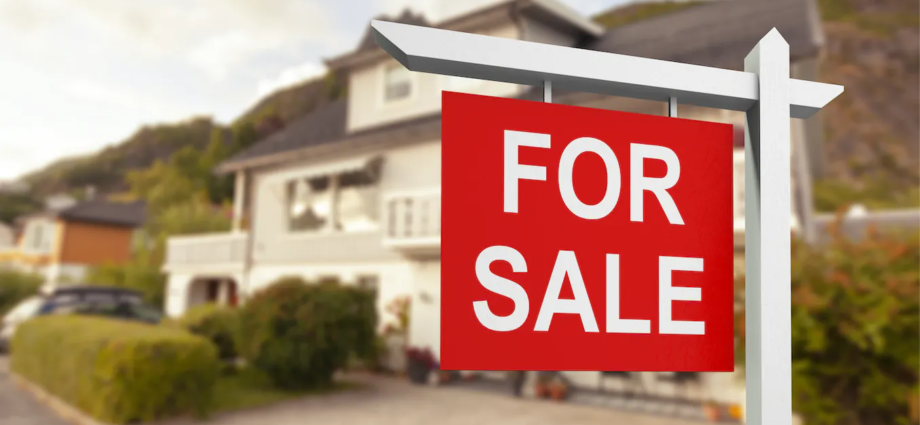
The federal government considering this option to help Canadians buy their own home in no way threatens the secular nature of the state.
by Denis Hurtubise. Originally published on Policy Options
May 6, 2024
(Version française disponible ici)
Finance Minister Chrystia Freeland’s budget tabled in April for the 2024-2025 fiscal year expressed her intention to explore new measures to broaden access to the various alternative financing products available on the market.
This announcement was not accompanied by any regulatory changes. Rather, it is part of ongoing consultations with Canadian financial services providers and ethno-cultural communities. The goal of these consultations is to facilitate access to home ownership. One of the financing products being considered to achieve this is the so-called Islamic, or halal, mortgages.
This was all it took for Bloc Québécois Leader Yves-François Blanchet to declare that this financial product would constitute a “grave precedent” and that the Islamic mortgage was a strike against laïcité, or the secular state. Following suit, Jean-François Roberge, the minister responsible for relations with Canada and the Francophonie, pointed out that “treating people differently, from a banking point of view, according to their religious beliefs, contradicts choices Quebec has made.”
Do Islamic mortgages really go against the secular nature of the state, whether it is Quebec or Canada?
Before addressing this question, it should be pointed out that halal mortgages are not new to Canada. For example, the Canadian Halal Financial Corporation offers mortgages of this type. Similarly, other so-called ‘halal’ financial products are available to Canadians from Manulife Insurance Company, to name but one.
The federal government is exploring the possibility of the major Canadian banks adding mortgages of this type to their range of financial products. Finally, it should not be forgotten that in the country viewed by many Quebecers as the model of secularism, France, the Direction générale des finances publiques published in 2010 tax instructions for the treatment of financing contracts known as Islamic mortgages.
What is a halal mortgage?
A halal mortgage is a financial arrangement in which the borrower pays no interest on the loan. Like Christianity until the 18e century, Judaism when it comes to loans between Jews, and ancient Greece with Aristotle, Islam prohibits lending with interest. As with the other Abrahamic religions, this prohibition is based on the idea that the purpose of money is to serve need rather than to make gains, in addition to aiming for a fairer distribution of wealth.
But the halal mortgage is not without cost. They take the form of fees that vary according to the type of agreement between the lender and the borrower. For example, a person buying a home may rent it out initially, only to become the owner once the final payment has been made. In this case, the home is purchased by a bank trust, which rents it to the buyer.
However, Canadian banks are not presently allowed to offer halal mortgages. As Jocelyn Grira, associate professor of finance at Athabasca University’s faculty of business points out, they do not have the technological infrastructure nor the legal and financial expertise this financial product requires. These are the issues that the federal government wants to address over the coming months, with the aim of facilitating access to property for people interested in taking out this type of mortgage.
Now that we understand what halal mortgages are all about, let’s get to the heart of the matter: do they run against laïcité, or, again,are they against the secular nature of the state, to use the expression of the Bloc Québécois leader?
Halal mortgages and secularism: what’s the connection?
Statements like those from Quebec political figures illustrate very defensive reactions to Islam and, on occasion, to religion in general. Social media comments propagate this defensive stance, often on the grounds of an incorrect understanding of laïcité.
The reactions to halal mortgages are just the latest manifestation of a tendency to use laïcitéas a shield, or even a weapon, to prevent or attack any regulatory or legislative accommodation related to religion. This is not what secularism is meant to be.
Laïcitéis the principle that the state should be free from any intentional external religious influence. In other words, the secular state is neither under the control nor under the influence of an organised religion or religious current seeking to impose its will upon it. A second principle is that the state is neutral in matters of religion, in the sense that it does not favour or disfavour one religion or another, leaving people to make their own religious choices, which can include not adhering to any religion.
Clearly, the fact that a state decides to seek ways to open access to property for people who face limitations for religious reasons is not a breach of its secular nature. The Canadian government is doing this on its own initiative, and not because an organised religion or religious current is imposing it. Secondly, the government is not seeking to favour one religion over another. On the contrary, it is exploring ways of ensuring that people who practise a particular religion enjoy the same benefits as their fellow citizens. This is not an attempt to favour one religion over another. Plus, despite the religious labels attached to these mortgages, the financial instruments are available to anyone. This is not promoting one religion over another.
The government might have debatable political motivations in the case of halal mortgages, but the secular nature of the state is not at issue here.
Subscribe to our newsletter.
This article first appeared on Policy Options and is republished here under a Creative Commons license.


